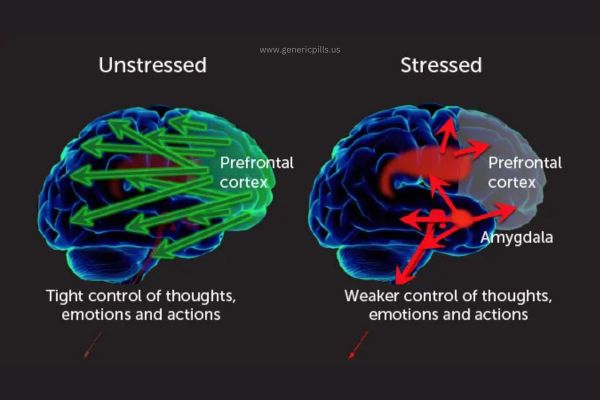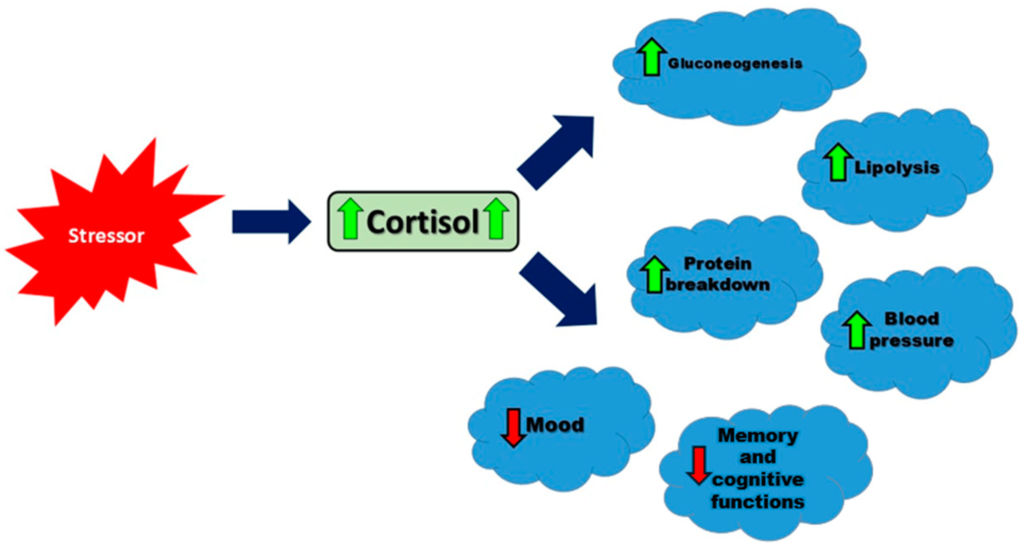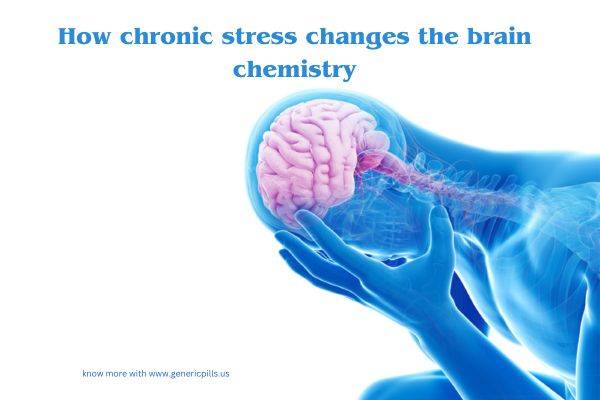Stress and the Brain: How Chronic Stress Changes Your Brain Chemistry
Stress is part of life, but chronic stress can be destructive to both the mind and the body. Though many are well aware of the physical implications of long-term stress, including tiredness and decreased immunity, most people are unaware of how greatly it impacts the brain. Chronic stress doesn’t just make us feel overwhelmed; it can change the structure and chemistry of the brain, affecting memory and mood to decision-making and cognitive function.
When stress becomes chronic, it leads to an overproduction of cortisol, the body’s primary stress hormone. Eventually, too much cortisol can shrink important brain regions, such as the hippocampus, weaken the prefrontal cortex, and overstimulate the amygdala. These changes contribute to issues like anxiety, depression, and difficulty concentrating, making it harder to cope with daily challenges.
The good news is that the brain is incredibly adaptable and healing, which is known as neuroplasticity. Now that we know how stress alters brain chemistry, we can start taking proactive measures to counter the negative effects it has on us. In this blog, we will explore the science behind stress and the brain, the long-term consequences of chronic stress, and effective strategies to protect and restore brain health.
What Are the Functions Within the Brain That Occur Under Conditions of Stress?
During stress, the hypothalamic-pituitary-adrenal axis stimulates in our brains, an intricate system that regulates the reaction of our body to stress. This system activates the release of cortisol, the main stress hormone, which prepares the “fight or flight” response.
This is a great response for immediate short-term needs—it makes one focus better, alert, and provides energy for dealing with pressing problems. When stress is chronic, too much cortisol and other stress hormones start damaging the brain, which, in turn, can lead to long-term problems with thinking and feeling.

How Chronic Stress Changes Brain Chemistry
Chronic stress triggers an overproduction of cortisol, the body’s primary stress hormone, which can disrupt brain chemistry in significant ways. Over time, excessive cortisol shrinks the hippocampus (affecting memory and learning), weakens the prefrontal cortex (impairing decision-making and focus), and overstimulates the amygdala (heightening fear and anxiety responses). Additionally, chronic stress depletes key neurotransmitters like serotonin and dopamine, leading to mood imbalances, fatigue, and reduced motivation. These changes can contribute to anxiety, depression, and cognitive decline, making it crucial to manage stress effectively to protect brain health.
1. Excess Cortisol Shrinks the Hippocampus (Memory Center)
It’s the part of the brain which is responsible for memory formation and emotional regulation. Chronic stress has been known to cause an overproduction of cortisol, which shrinks the hippocampus over time. Studies show that people in long-term stress have a poor ability to recall memories, learn new information, and regulate their emotions. All these increase the risk of such conditions as anxiety, depression, and even Alzheimer’s disease.
2. Overactivation of the Amygdala Fear and Anxiety Center
It is the brain’s fear center, processing emotions such as anxiety, fear, and anger. Chronic stress over-activates the amygdala, thus making us more sensitive to emotional reactions, easily irritated, and anxiously worrisome; that is why people can feel really anxious and easily triggered by small frustrations.
3. The Weakened Prefrontal Cortex This is the seat of decision-making and impulse control.
This area of the brain is responsible for higher cognitive functions such as decision-making, problem-solving, and self-control. Chronic stress can weaken this part of the brain, causing one to make irrational decisions, fail to concentrate, and act impulsively. Thus, individuals experiencing high levels of stress may be unable to concentrate, make nonsensical decisions, or develop unhealthy coping behaviors such as binge eating or substance abuse.
4. Imbalanced Neurotransmitters (Mood and Motivation Disruptions)
Neurotransmitters are the chemical messengers of the brain that control mood, motivation, and overall mental well-being. Chronic stress throws off the balance of these vital chemicals:
- Serotonin, the “feel-good” neurotransmitter, is decreased, causing anxiety, depression, and mood swings.
- Dopamine, the neurotransmitter that helps with motivation and pleasure, is reduced, causing lack of motivation, fatigue, and apathy.
- GABA, which calms the nervous system, is depleted, making it harder to relax and sleep well.
This chemical imbalance leads to the occurrence of depression, anxiety, and burnout in mental health disorders.
5. Increased Brain Inflammation
Chronic stress is known to cause neuroinflammation that can affect brain cells negatively, leading to a decline in cognitive functions. It has been related to increased neurodegenerative diseases like Alzheimer’s and Parkinson’s if not checked early. Inflammation in the brain also explains some symptoms, including brain fog, difficulty in concentration, and constant fatigue.

How to Reverse the Effects of Chronic Stress on the Brain
The good news is that the brain has an amazing ability to heal and adapt. Through a process called neuroplasticity, it can form new neural connections and recover from stress-induced damage. Here are some effective ways to reverse or minimize the harmful effects of chronic stress:
1. Practice Mindfulness and Meditation
Mindfulness techniques such as deep breathing, meditation, and yoga have proven to decrease the levels of cortisol, reduce the size of the amygdala, and build the prefrontal cortex. Regular mindfulness can help rewire the brain in handling stress much better.
2. Exercise Frequently
Physical activity stimulates the release of dopamine, serotonin, and endorphins, which help improve mood and cognitive function. Aerobic exercises like running, cycling, and swimming are particularly beneficial in reducing stress-related brain damage.
3. Prioritize Sleep
Stress on the brain is more enhanced when not resting. Although there are various resources of getting sleep, 7-9 hours at night for a quality sleep per day allows the brain to rest, repair damaged cells, and restore neurotransmitter balance. Good sleep hygiene, such as maintaining a consistent sleep schedule and avoiding screens before bedtime, is essential.
4. Healthy Diet
A diet rich in omega-3 fatty acids, such as those found in fish and nuts; antioxidants found in fruits and vegetables; and magnesium present in greens and seeds, can be helpful against stress effects and acts as anti-inflammatory on brain levels. Steer clear of too much sugar, caffeine, and processed foods to further mess with the chemistry of your brain.
5. Strong Social Relationships
Spending time with loved ones and engaging in positive social interactions can reduce stress hormone levels and increase the production of feel-good neurotransmitters. People’s stress and chronic stress levels and the health of their brains over time are higher among those who do not have strong social support networks, studies show.
6. Engage in Activities That Bring Joy
Hobbies, smiling, music, painting, or even writing can get your brain’s reward system going and release more dopamine to compensate for the levels lost due to stress.
7. Limit Exposure to Stress Triggers
Although we cannot avoid stress in general, reduction of unnecessary stressors such as extended working hours, viewing too much distressing news helps in overcoming poor mental well-being. Healthy boundaries with self-care are also important in protecting the health of your brain.

Final Thoughts: Taking Charge of Your Brain Health
Chronic stress is not just an emotional burden but, in fact, alters the physical brain, influencing mood, decision-making, and other cognitive processes. But once you understand how chronic stress modifies the brain chemistry, you can do things to undo it and make your brain more resilient.
Whether it’s mindfulness, exercise, healthy eating, or meaningful social connections, there are so many ways to rewire the brain, reduce stress, and improve overall well-being. The key is consistency: small daily actions can have a profound impact on protecting your brain from the harmful effects of chronic stress.
So, take a deep breath, prioritize self-care, and remember: your brain has the power to heal and thrive, no matter how much stress life throws your way.























